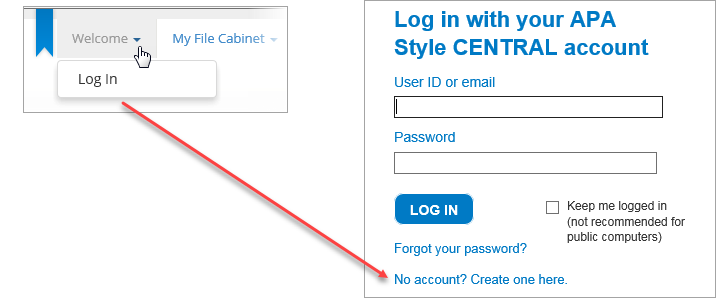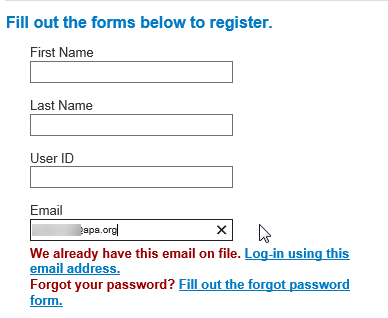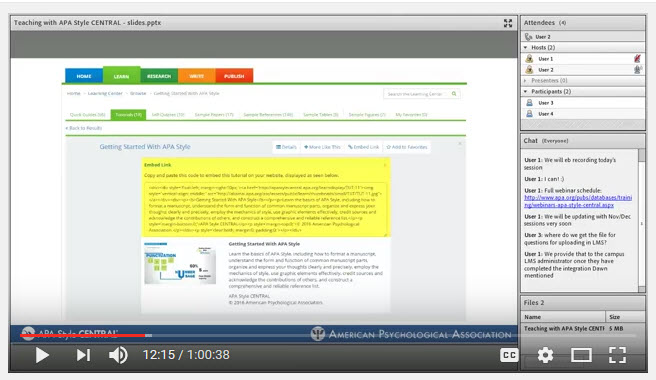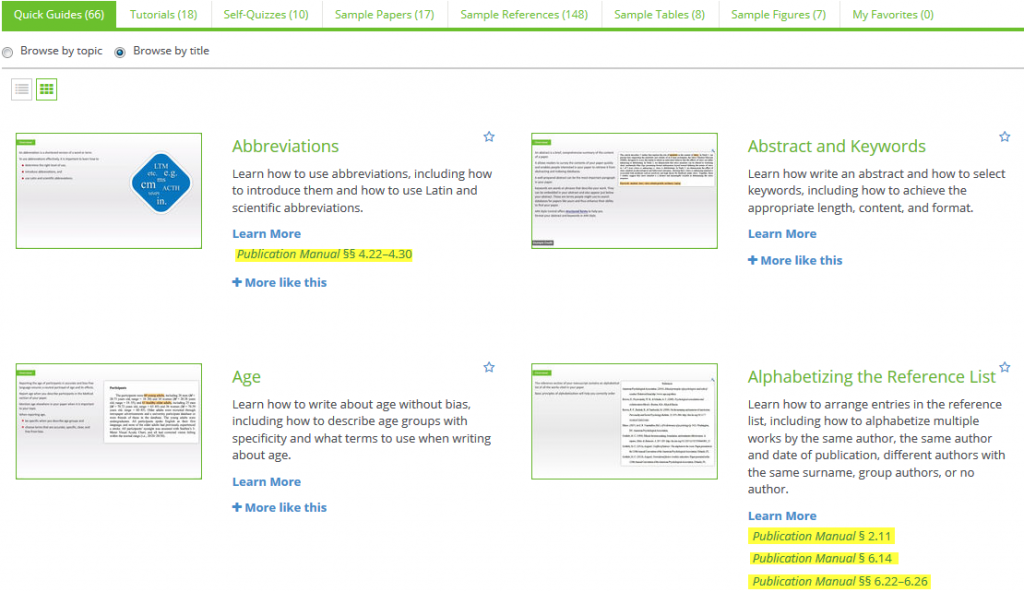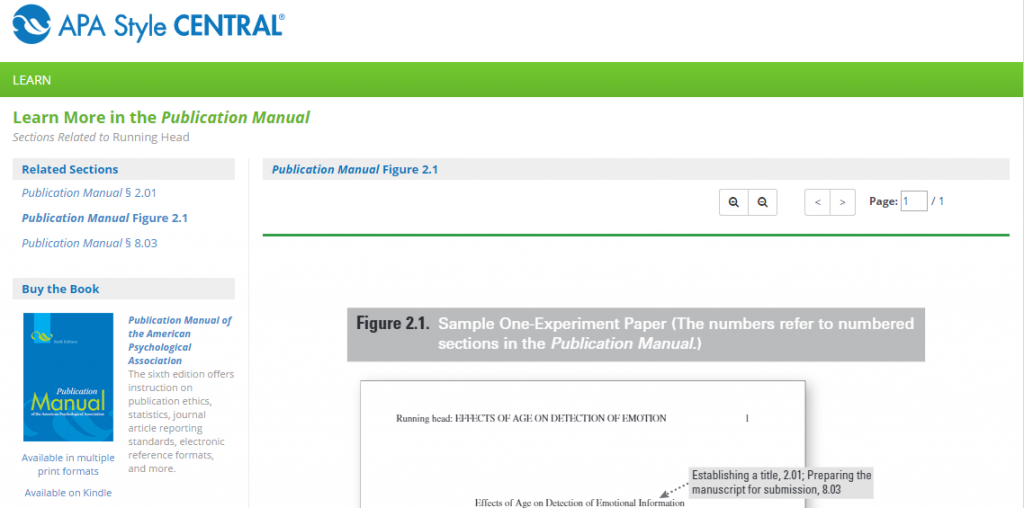Today we’d like to share an excerpt from one of our APA Style CENTRAL handouts, “Creating APA Style CENTRAL® Accounts” (PDF). Please feel free to link to this handout where students, faculty, and researchers will find it.
When using APA Style CENTRAL, you will need an account in order to write or collaborate on a paper, create a reference list, or use the research planning and tracking tools.
We all have more accounts than we know what to do with (or can remember!), but here’s the good news: Any existing APA account can also be used as your APA Style CENTRAL account — including a MyAPA, APA membership, APA PsycNET®, or MyPsycNET account.
Not sure if you have an existing APA account to use for APA Style CENTRAL? Do a quick check by visiting your institution’s APA Style CENTRAL home page. At the top right corner of the screen, select Welcome and Log In; then on the next screen, select the No account? link:
Enter your email address into the Email field and click anywhere outside the textbox to run the system check. If it matches, you will see a login prompt; if not, you can try entering a different email address or complete the rest of the form to create a new account:
Want to learn more? You’ll find this handout on our APA Style CENTRAL® Handouts and Guides page, where we will continue to add handouts and documentation for users and administrators as they become available.

